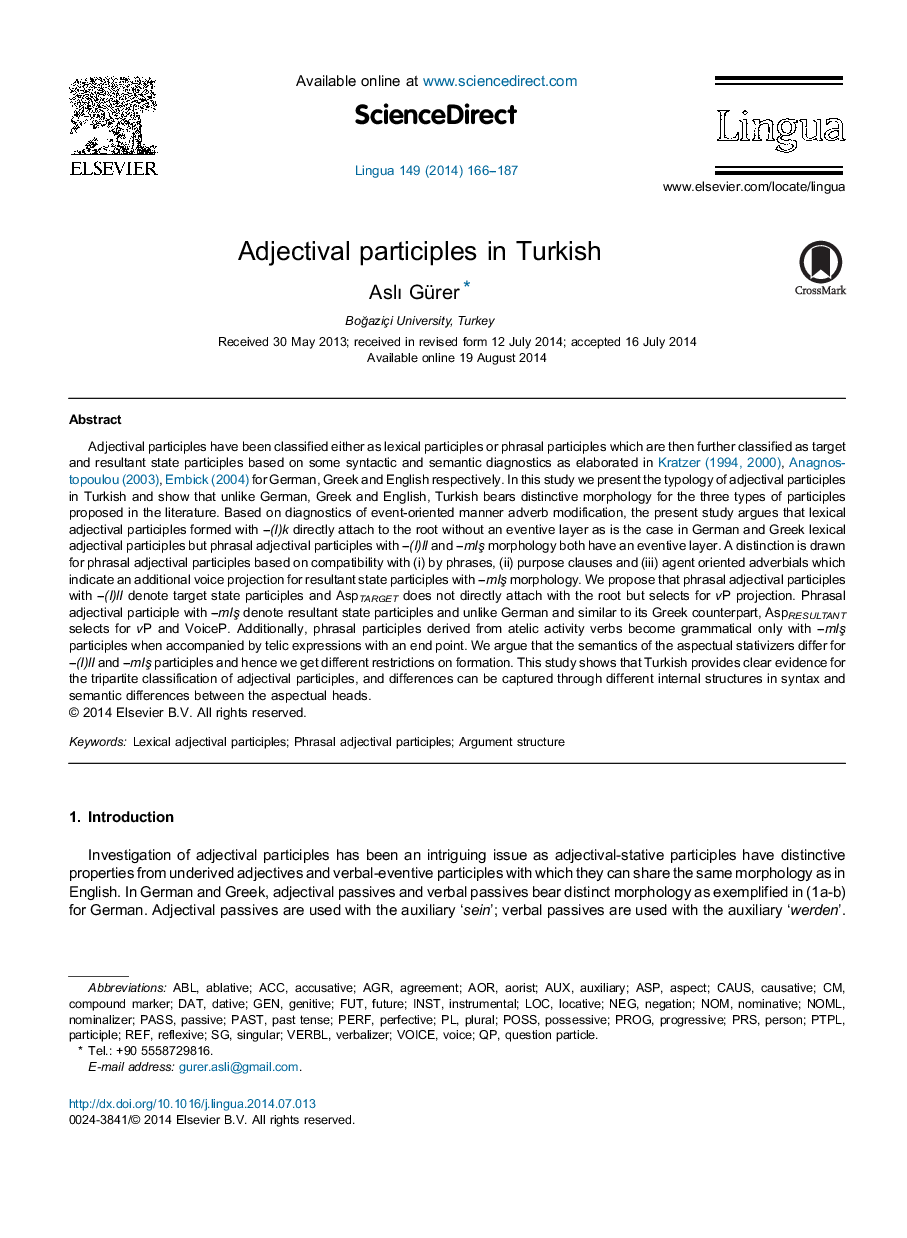| کد مقاله | کد نشریه | سال انتشار | مقاله انگلیسی | نسخه تمام متن |
|---|---|---|---|---|
| 935422 | 923874 | 2014 | 22 صفحه PDF | دانلود رایگان |
• Turkish bears distinctive morphology for the three types of participles.
• Lexical adjectival –(I)k suffix directly attaches to the root.
• Resultant state participles with –mIş have an eventive and a voice projection above the root.
• Target state participles with -(I)lI have an eventive layer above the root.
Adjectival participles have been classified either as lexical participles or phrasal participles which are then further classified as target and resultant state participles based on some syntactic and semantic diagnostics as elaborated in Kratzer, 1994 and Kratzer, 2000, Anagnostopoulou (2003), Embick (2004) for German, Greek and English respectively. In this study we present the typology of adjectival participles in Turkish and show that unlike German, Greek and English, Turkish bears distinctive morphology for the three types of participles proposed in the literature. Based on diagnostics of event-oriented manner adverb modification, the present study argues that lexical adjectival participles formed with –(I)k directly attach to the root without an eventive layer as is the case in German and Greek lexical adjectival participles but phrasal adjectival participles with –(I)lI and –mIş morphology both have an eventive layer. A distinction is drawn for phrasal adjectival participles based on compatibility with (i) by phrases, (ii) purpose clauses and (iii) agent oriented adverbials which indicate an additional voice projection for resultant state participles with –mIş morphology. We propose that phrasal adjectival participles with –(I)lI denote target state participles and AspTARGET does not directly attach with the root but selects for vP projection. Phrasal adjectival participle with –mIş denote resultant state participles and unlike German and similar to its Greek counterpart, AspRESULTANT selects for vP and VoiceP. Additionally, phrasal participles derived from atelic activity verbs become grammatical only with –mIş participles when accompanied by telic expressions with an end point. We argue that the semantics of the aspectual stativizers differ for –(I)lI and –mIş participles and hence we get different restrictions on formation. This study shows that Turkish provides clear evidence for the tripartite classification of adjectival participles, and differences can be captured through different internal structures in syntax and semantic differences between the aspectual heads.
Journal: Lingua - Volume 149, Part B, September 2014, Pages 166–187
